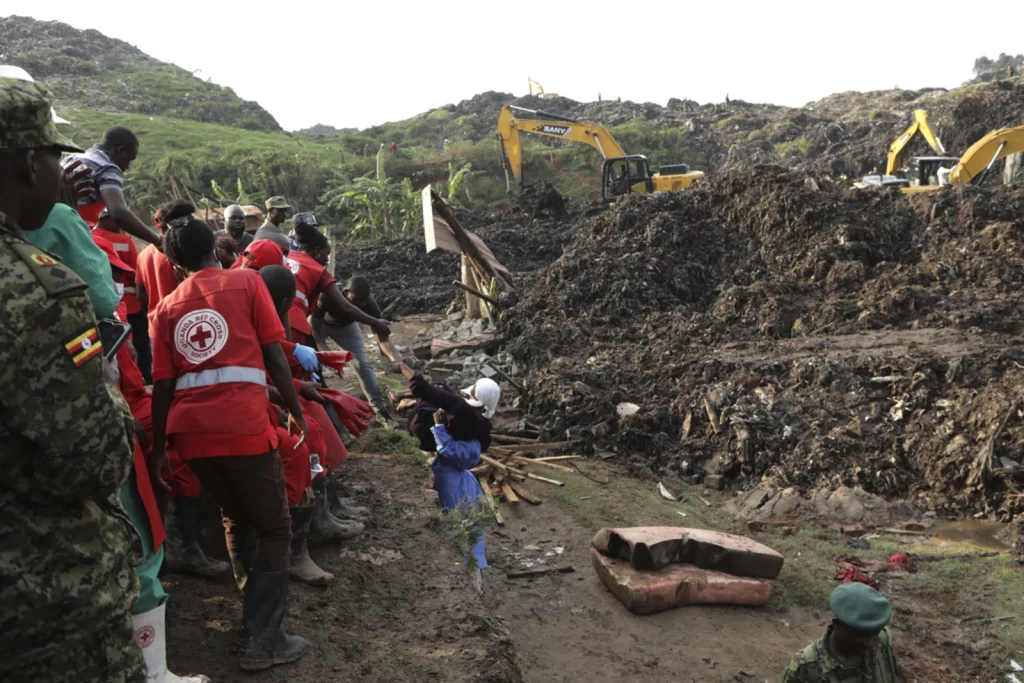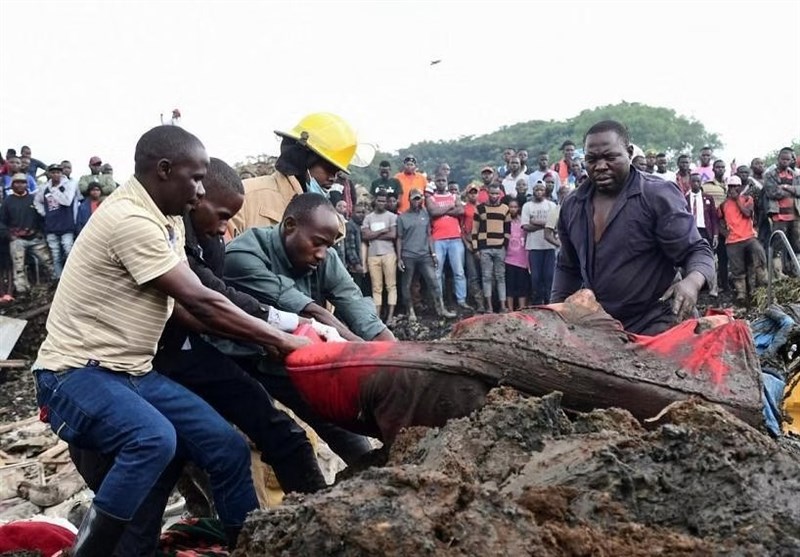KAMPALA, UGANDA – The death toll from last week’s catastrophic garbage landslide at a vast landfill site on the outskirts of Uganda’s capital, Kampala, has increased to 26 as of Wednesday, according to local authorities. The search continues for 39 people still missing, as rescuers work tirelessly to recover those feared buried beneath the tons of garbage.

The disaster occurred late Friday night when a “mountain of garbage” collapsed at the landfill in the Kiteezi area, burying dozens of people as they slept. The collapse followed several days of torrential rainfall, which has plagued the region in recent weeks, triggering widespread flooding and damage across East Africa.
“We have now confirmed 26 dead, and unfortunately, the number could rise as we continue our recovery efforts,” said a police spokesperson at a press briefing. “We are still working to locate and retrieve the bodies of those who remain missing.”
As of Sunday, the death toll stood at 21. By midweek, rescuers had recovered more bodies from the site and were working with survivors to estimate the number of people still unaccounted for. Those missing include 35 residents from the local community who lived near the landfill and four workers who were at the dump site collecting garbage at the time of the collapse.
“The site is extremely dangerous, and we are using all available resources to excavate the area carefully. We are hoping to recover more of the missing, but the situation remains dire,” the police spokesperson added.
The collapse has drawn attention to the ongoing environmental and safety concerns surrounding Kampala’s landfill, which has long been criticized for poor management and hazardous conditions. Residents living near the landfill have frequently voiced complaints about the site, citing severe health risks and the buildup of hazardous waste.

“For years, this landfill has posed a significant threat to the surrounding community. The garbage has been piling up, and with the rains, it was a disaster waiting to happen,” said a local environmental activist.
The landfill has served as Kampala’s primary waste disposal site for decades and has become a focal point of the city’s ongoing waste management crisis. In addition to the recent flooding, authorities have been grappling with the environmental consequences of the sprawling landfill, which is overwhelmed by the waste produced by the city’s growing population.
The landslide in Kampala is reminiscent of previous disasters across Africa, where poorly managed garbage dumps and waste disposal sites have resulted in deadly incidents. In 2017, a garbage landslide in Addis Ababa, Ethiopia, claimed the lives of at least 115 people after a similar collapse occurred at the Koshe landfill.
In Kampala, the tragedy has highlighted the urgent need for improved waste management infrastructure and better environmental safeguards. Local authorities have pledged to investigate the cause of the landslide and take measures to prevent future disasters.
“This incident is a wake-up call. We must address the issue of waste management in Kampala and ensure that something like this never happens again,” said a government official during a visit to the site.
Rescue operations are ongoing, but authorities have warned that hopes of finding more survivors are dwindling as the search enters its seventh day. As the community mourns the loss of life, families of the missing continue to wait for news, praying that their loved ones will be recovered from the debris.
A Reuters story



